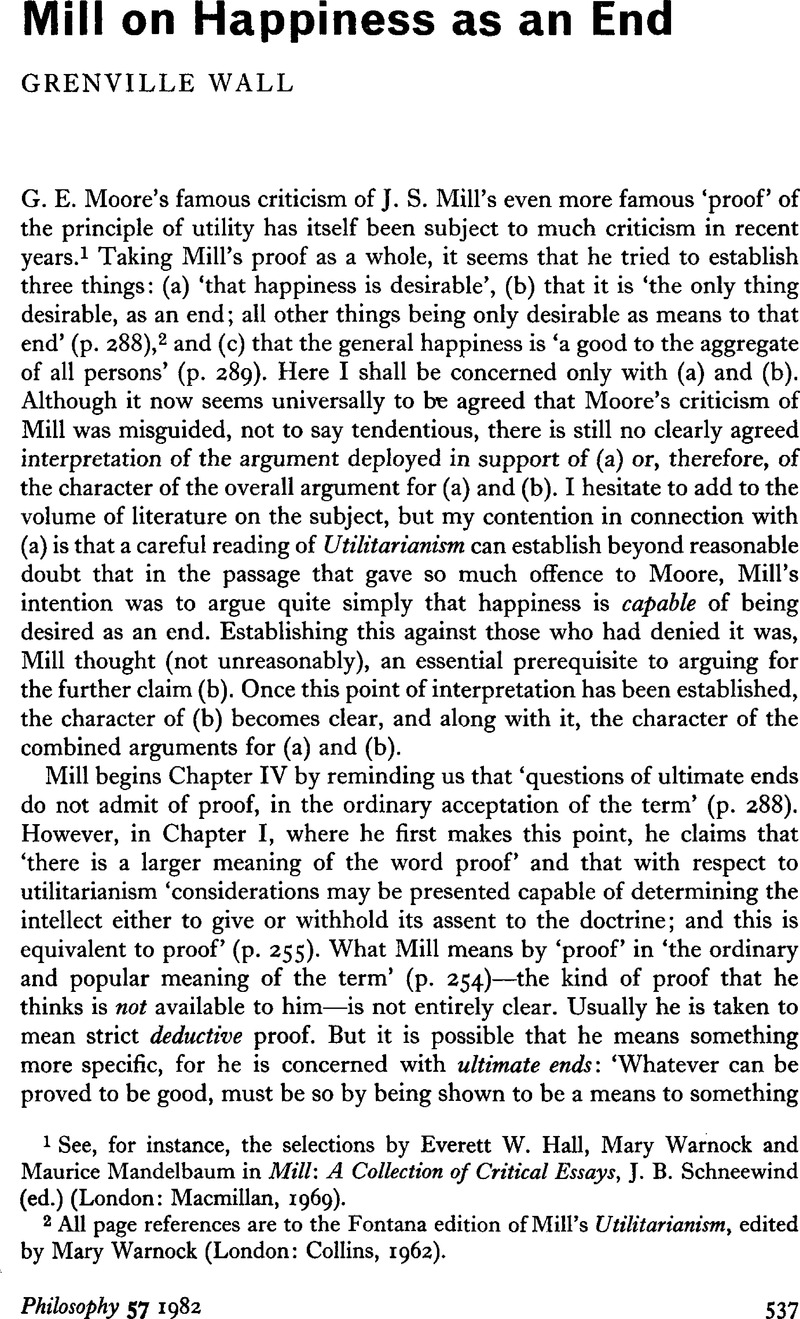Published online by Cambridge University Press: 30 January 2009

1 See, for instance, the selections by Everett W. Hall, Mary Warnock and Maurice Mandelbaum in Mill: A Collection of Critical Essays, J. B. Schneewind (ed.) (London: Macmillan, 1969).
2 All page references are to the Fontana edition of Mill's Utilitarianism, edited by Mary Warnock (London: Collins, 1962).
3 The possibility of this is entertained by R. F. Atkinson in ‘J. S. Mill's “Proof” of the Principle of Utility’, Philosophy 32 (1957).
4 G. E. Moore's criticism is to be found on p. 67 of Principia Ethica (London: Cambridge University Press, 1903).
5 Mill, A System of Logic, Book VI, Chapter XII, Sections 1 and 6.
6 Atkinson, op. cit., 161, rules out this possibility and so does Norman Kretzmann in ‘Desire as Proof of Desirability’, Philosophical Quarterly 8 (1958), 257.